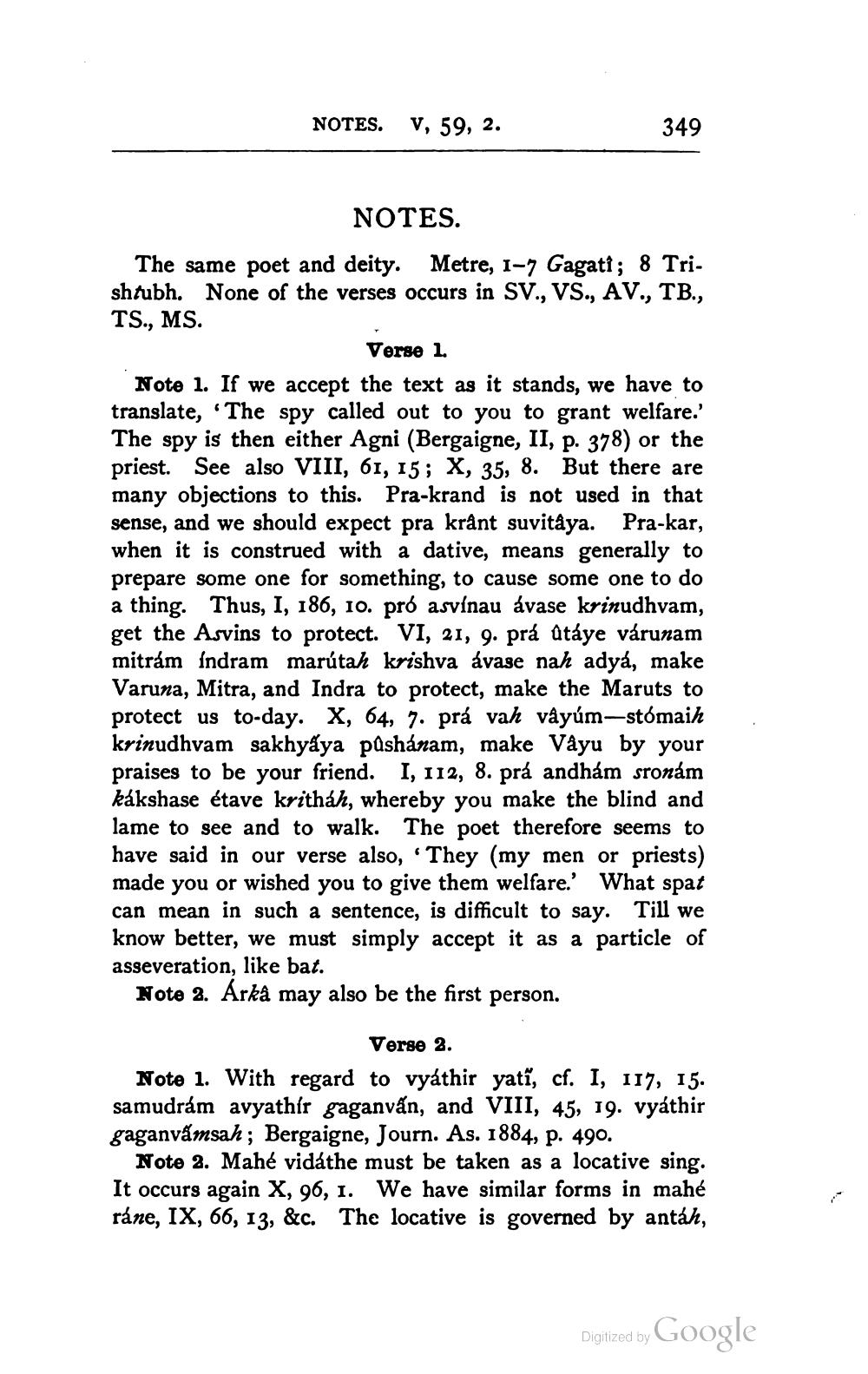________________
NOTES.
V, 59, 2.
349
NOTES. The same poet and deity. Metre, 1-7 Gagati; 8 Trishrubh. None of the verses occurs in SV., VS., AV., TB., TS., MS.
Verse 1 Note 1. If we accept the text as it stands, we have to translate, .The spy called out to you to grant welfare.' The spy is then either Agni (Bergaigne, II, p. 378) or the priest. See also VIII, 61, 15; X, 35, 8. But there are many objections to this. Pra-krand is not used in that sense, and we should expect pra kränt suvitâya. Pra-kar, when it is construed with a dative, means generally to prepare some one for something, to cause some one to do a thing. Thus, I, 186, 10. pro asvinau ávase krinudhvam, get the Asvins to protect. VI, 21, 9. pra ûtaye várunam mitram indrammarútah krishva ávase nah adya, make Varuna, Mitra, and Indra to protect, make the Maruts to protect us to-day. X, 64, 7. prá vah vâyúm-stómaih krinudhvam sakhyāya pashanam, make Våyu by your praises to be your friend. I, 112, 8. pra andhám sronám kákshase étave kritháh, whereby you make the blind and lame to see and to walk. The poet therefore seems to have said in our verse also, They (my men or priests) made you or wished you to give them welfare.' What spat can mean in such a sentence, is difficult to say. Till we know better, we must simply accept it as a particle of asseveration, like bat.
Note 2. Arkå may also be the first person.
Verse 2. Note 1. With regard to vyáthir yatî, cf. I, 117, 15. samudrám avyathir gaganvấn, and VIII, 45, 19. vyáthir gaganvämsah; Bergaigne, Journ. As. 1884, p. 490.
Note 2. Mahé vidáthe must be taken as a locative sing. It occurs again X, 96, 1. We have similar forms in mahé ráne, IX, 66, 13, &c. The locative is governed by antah,
Digitized by
Digitized by Google




